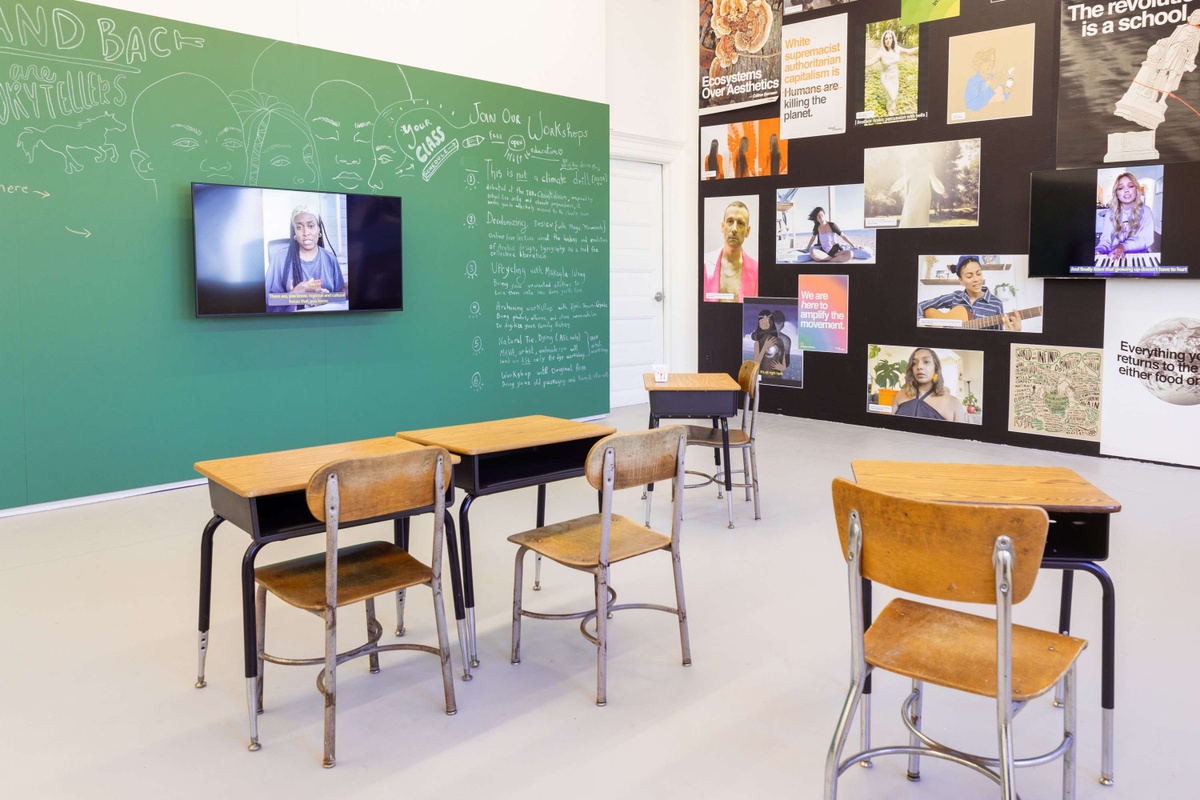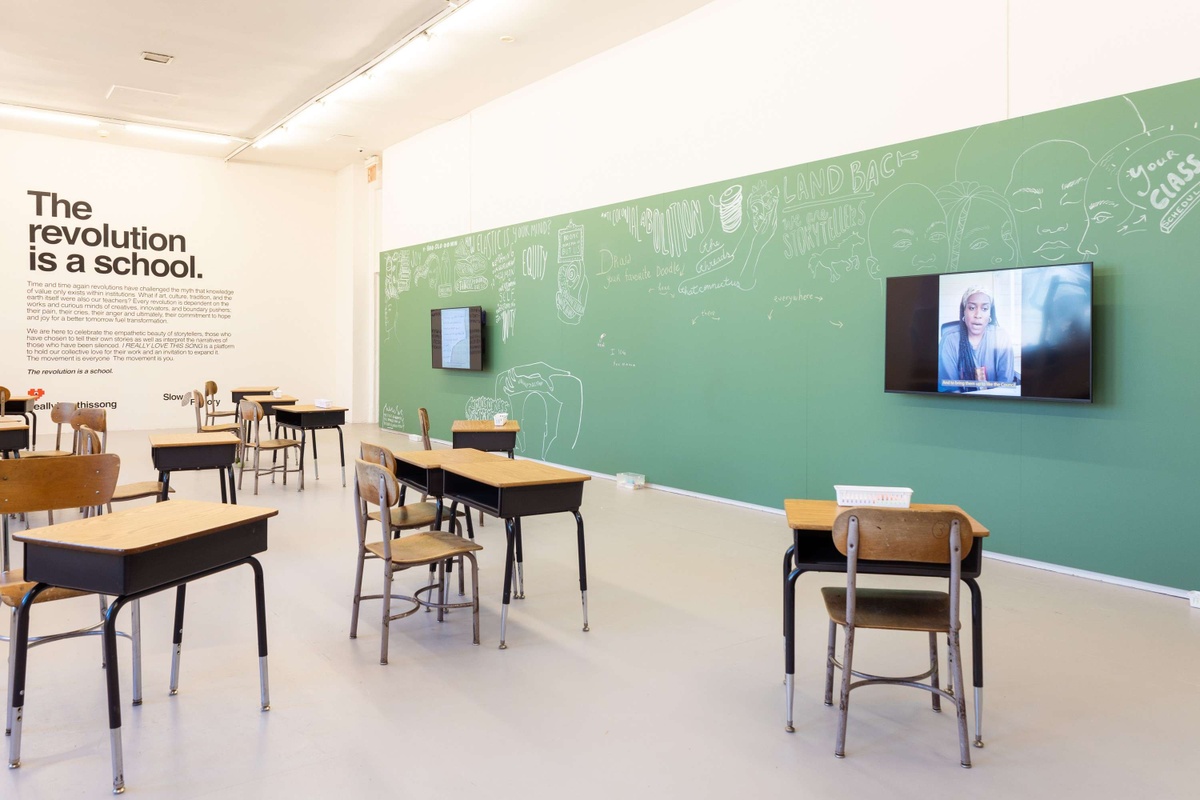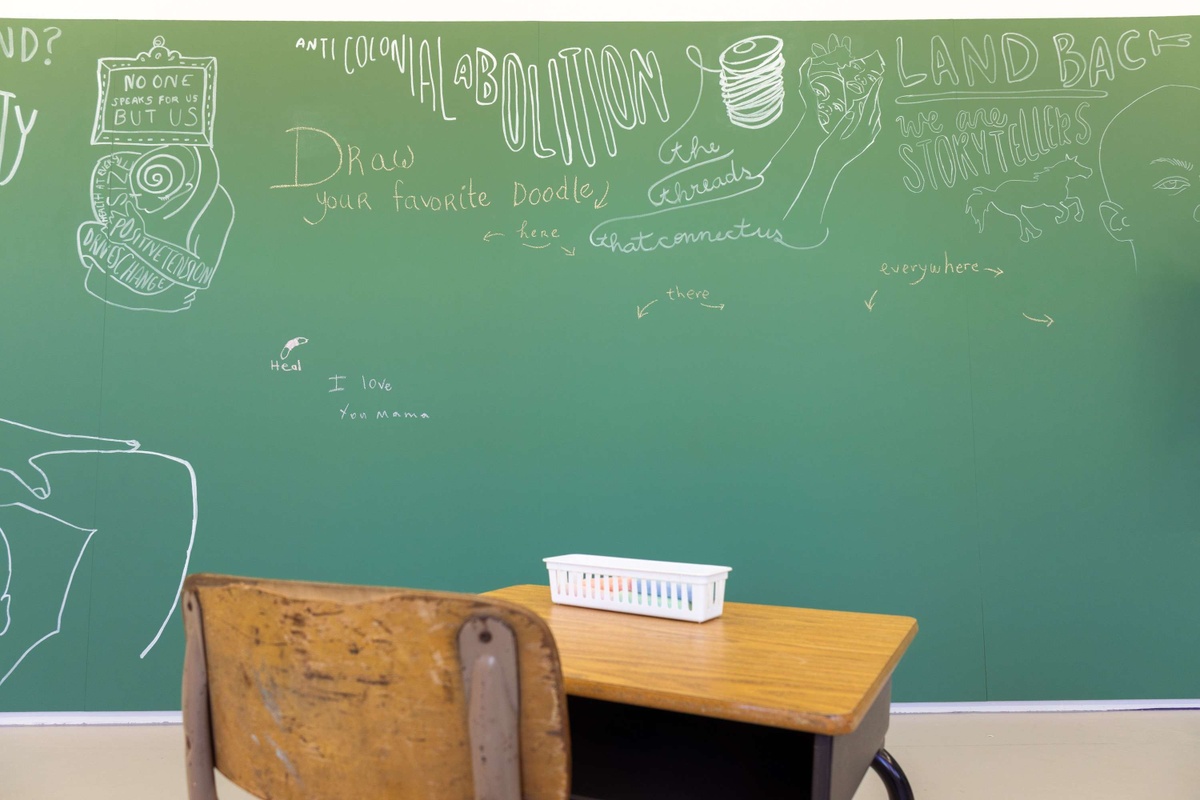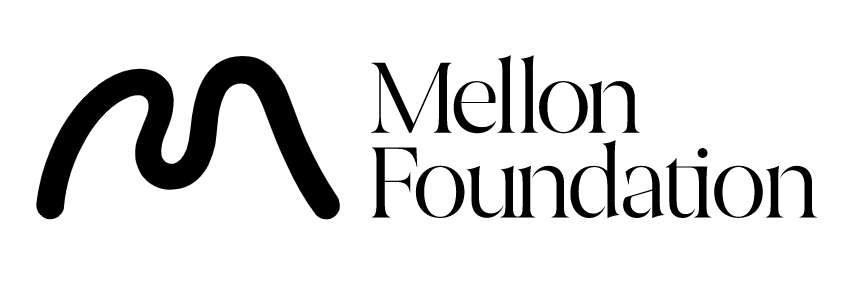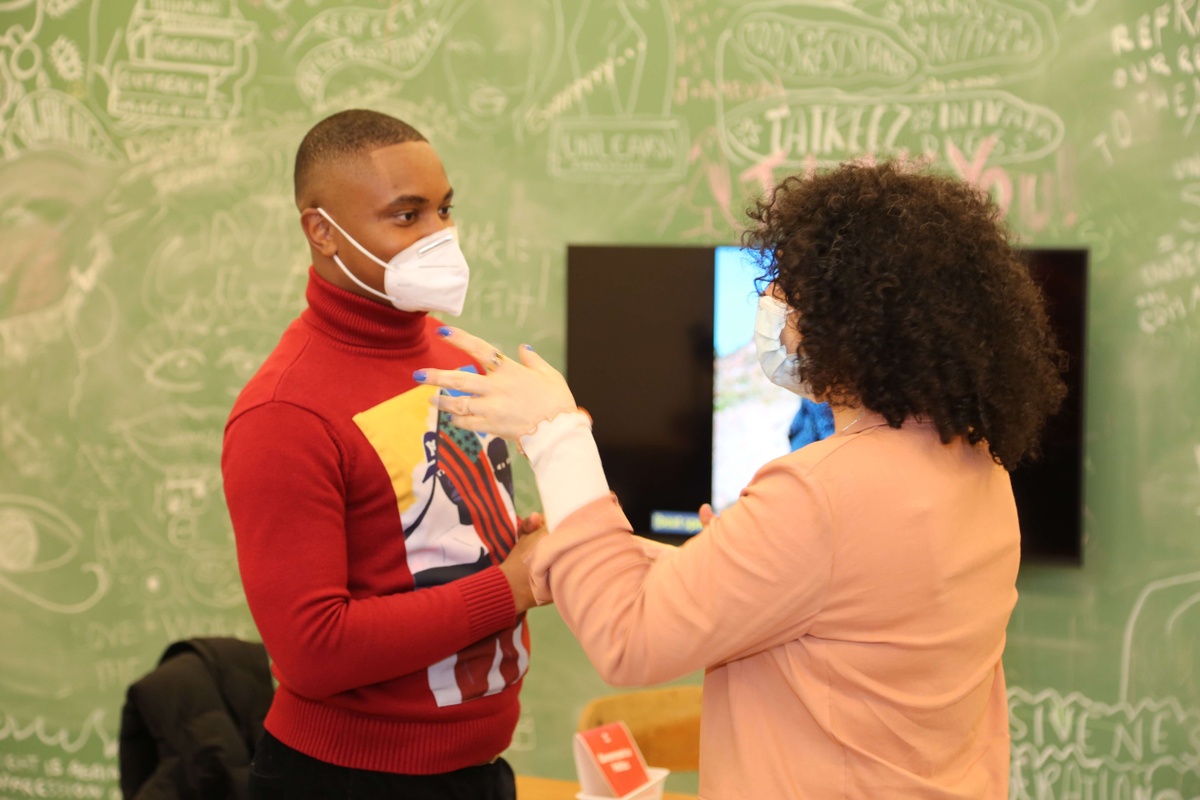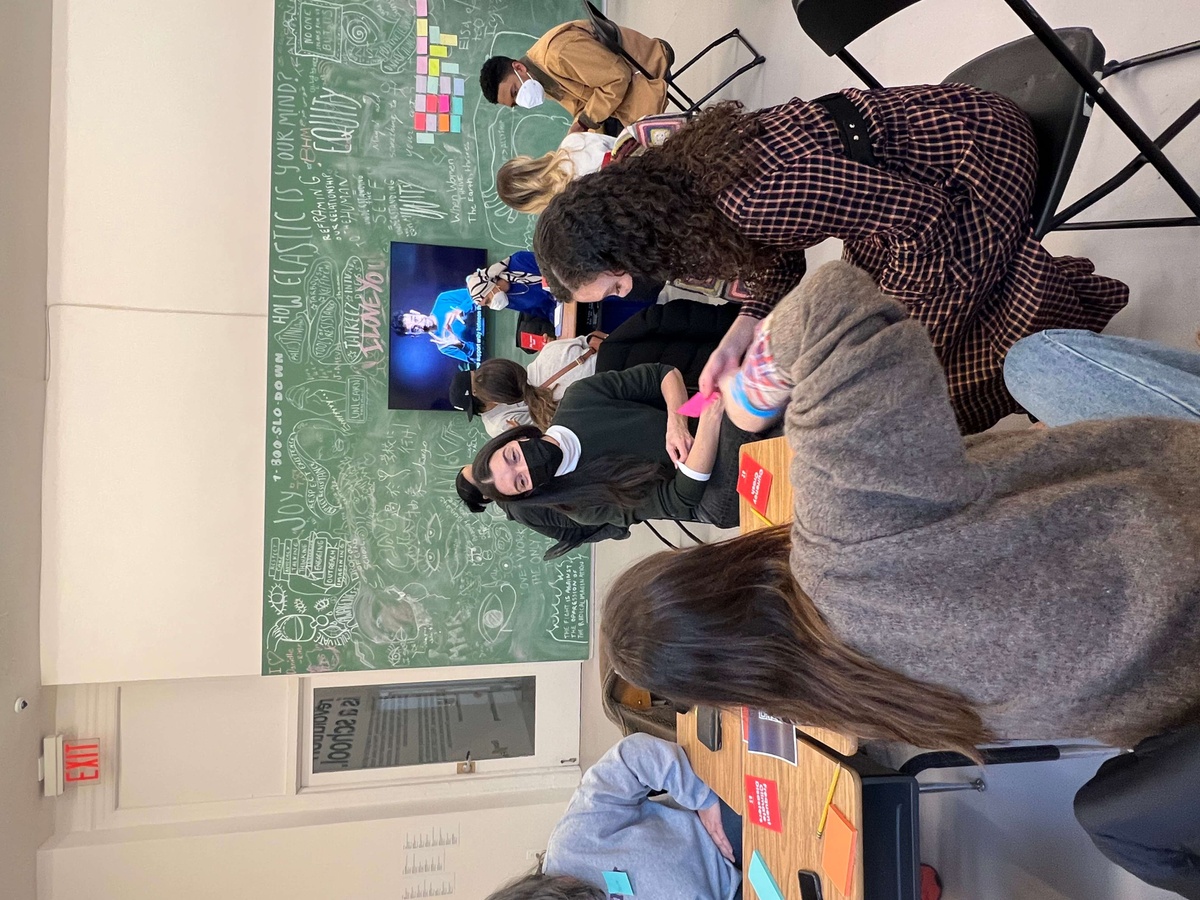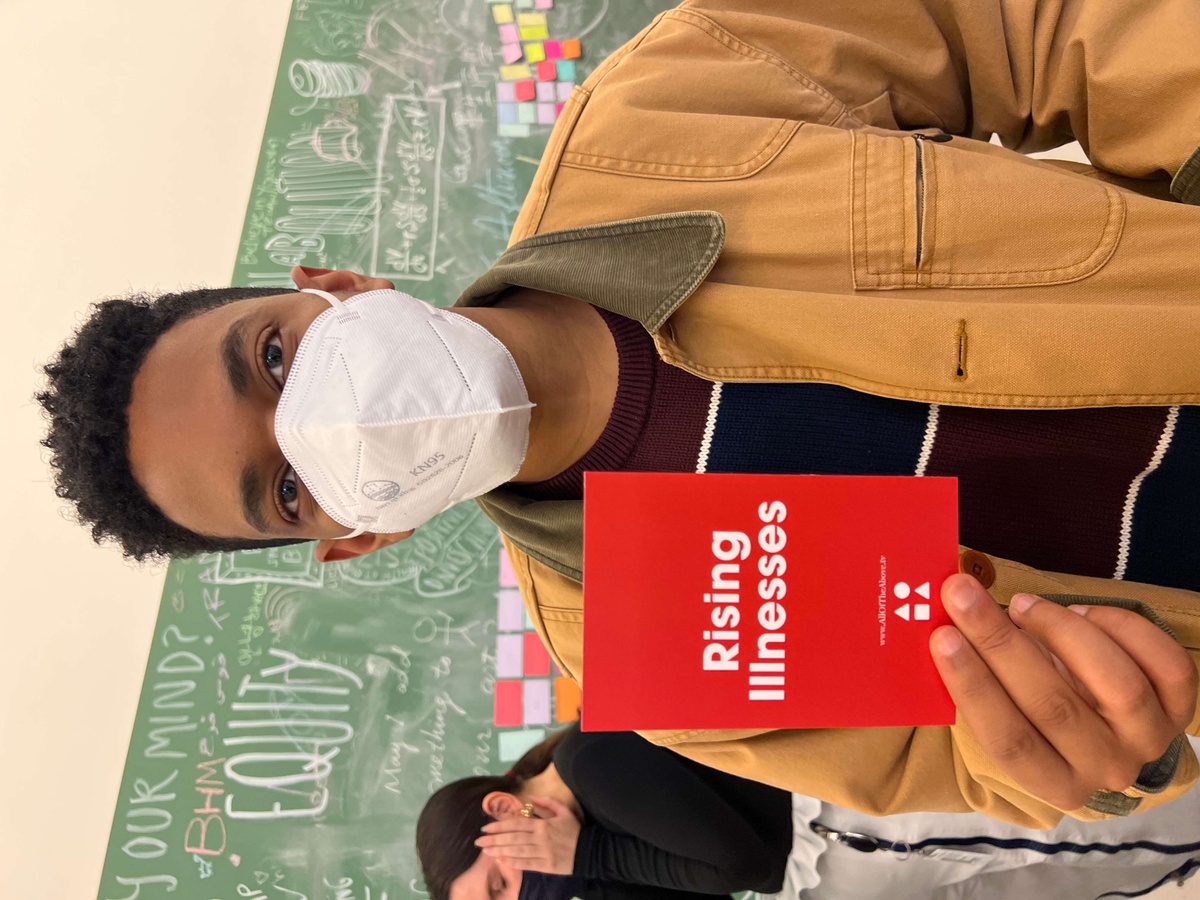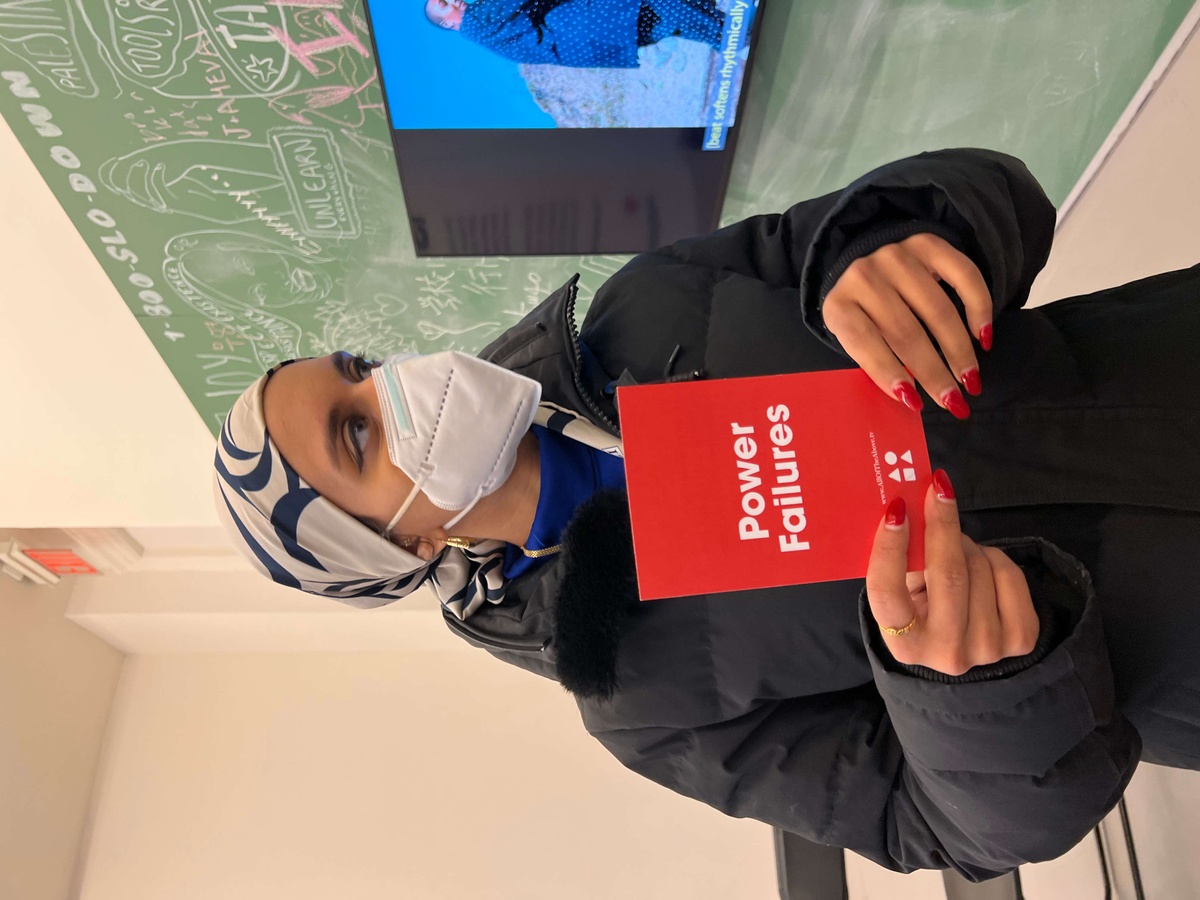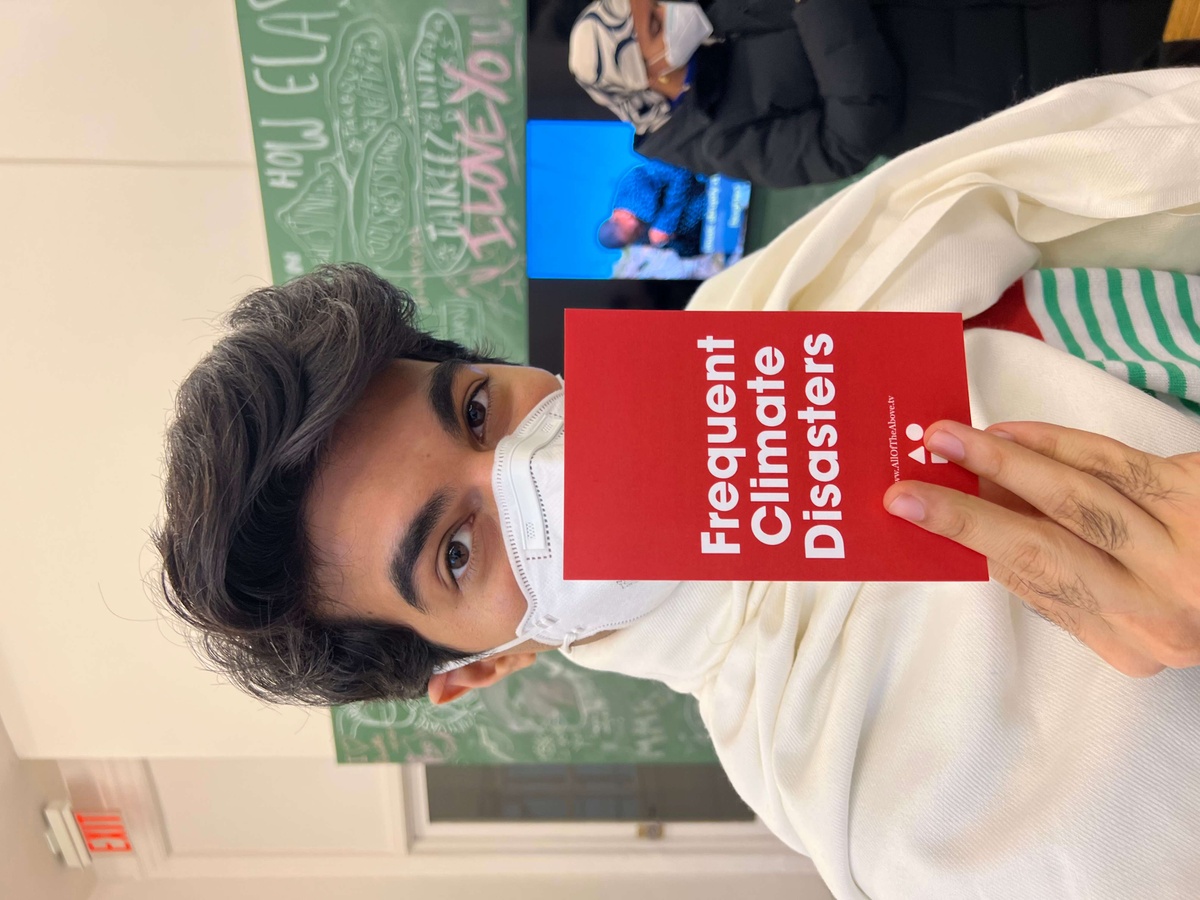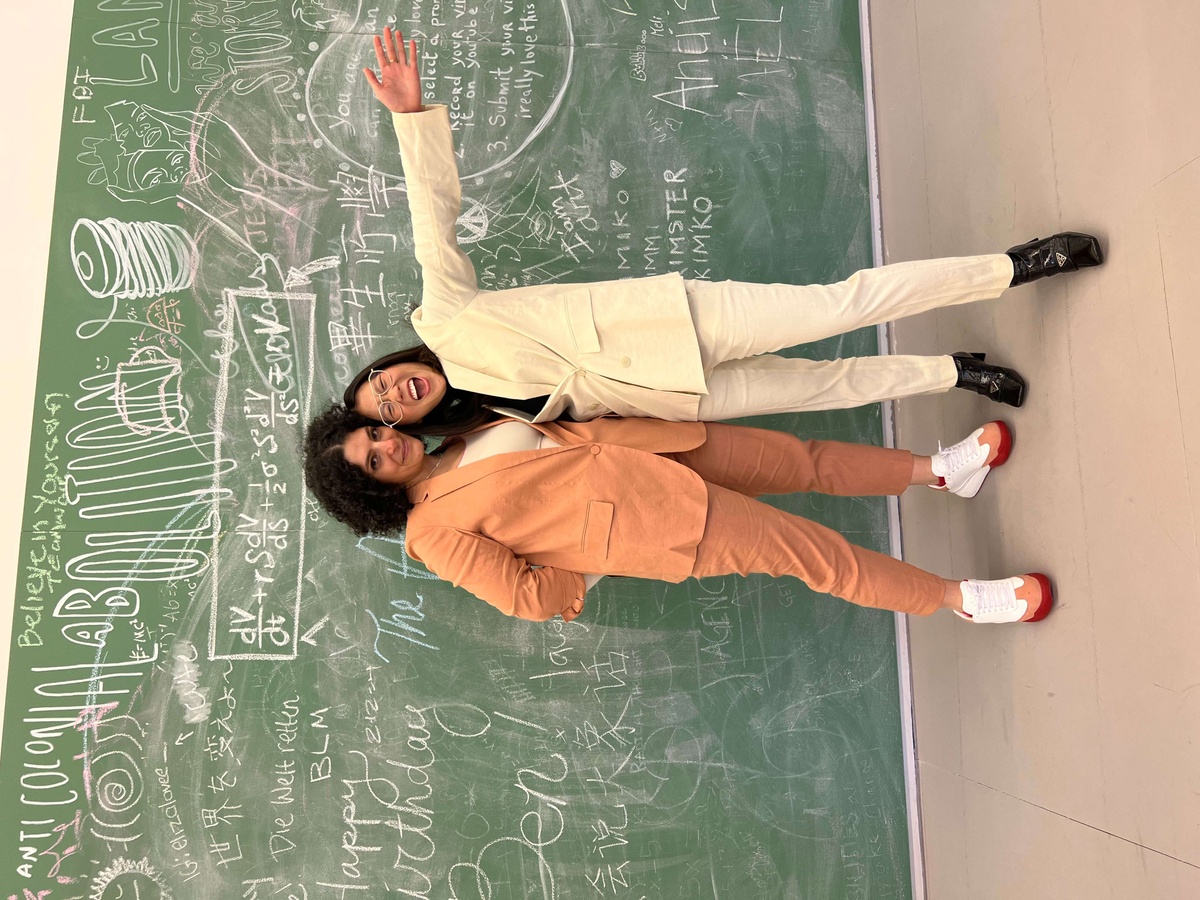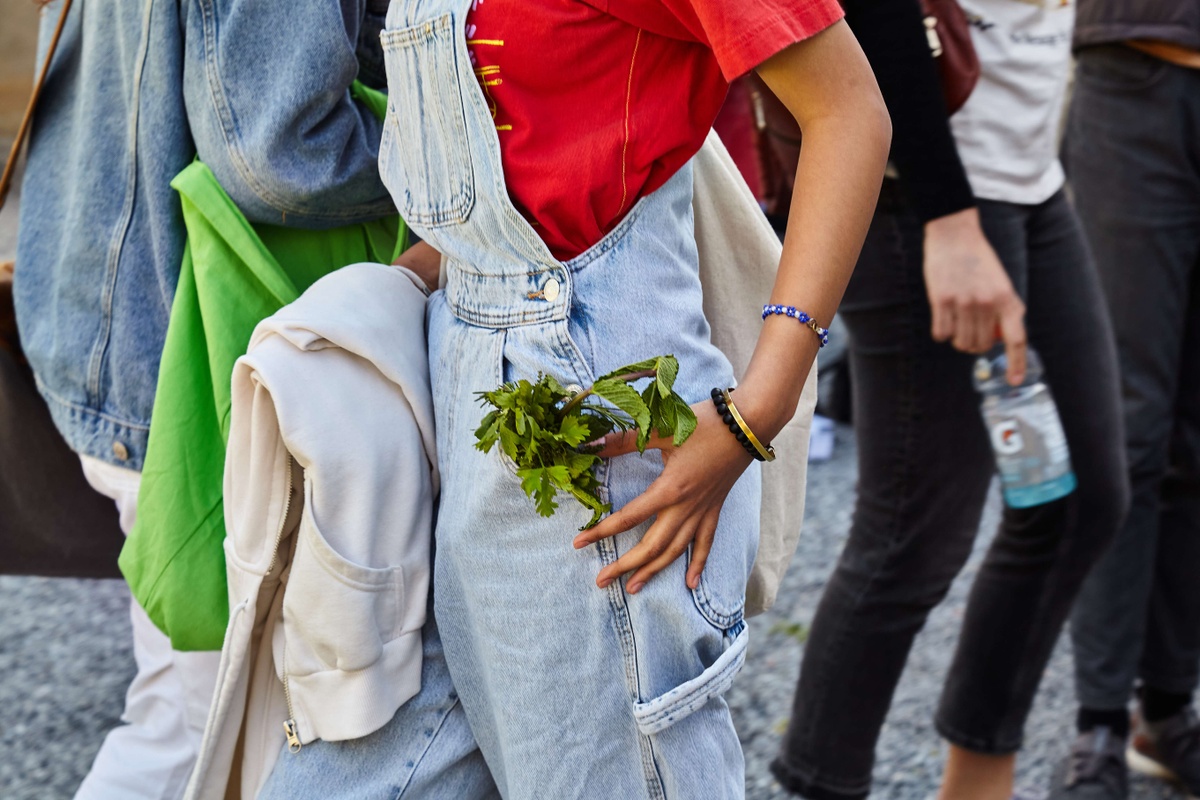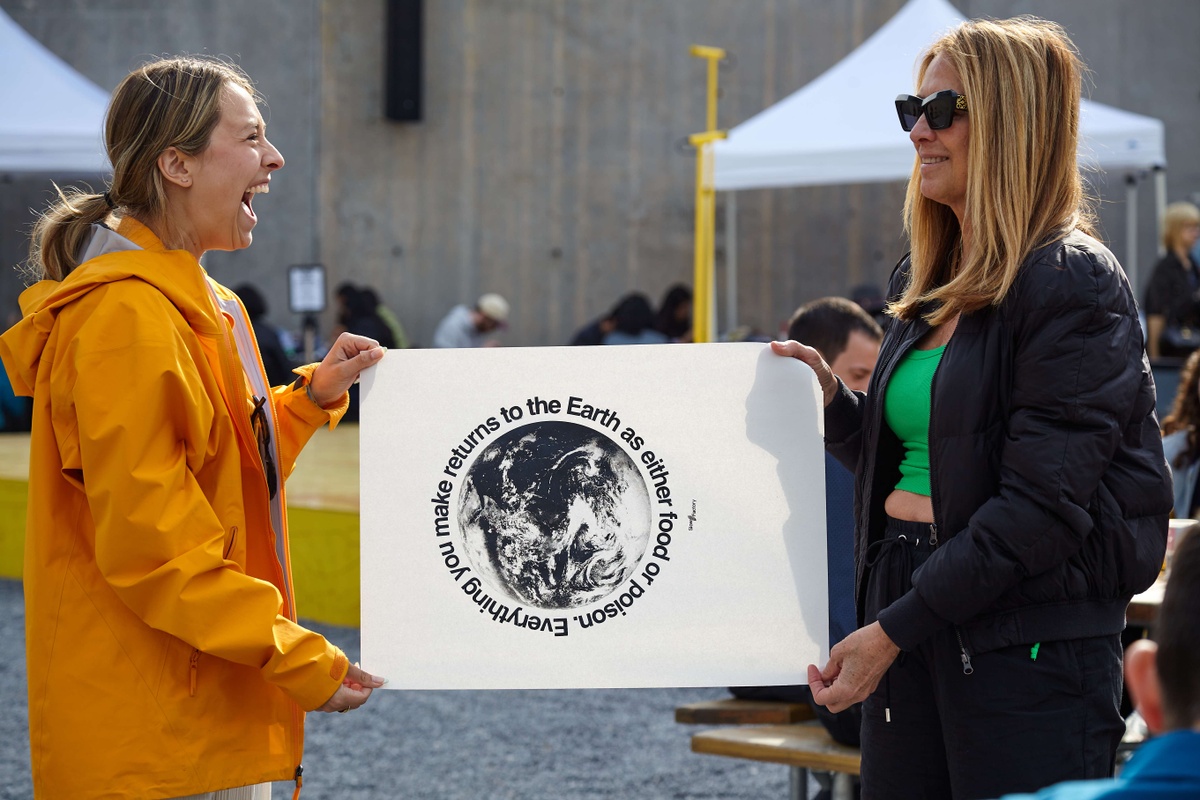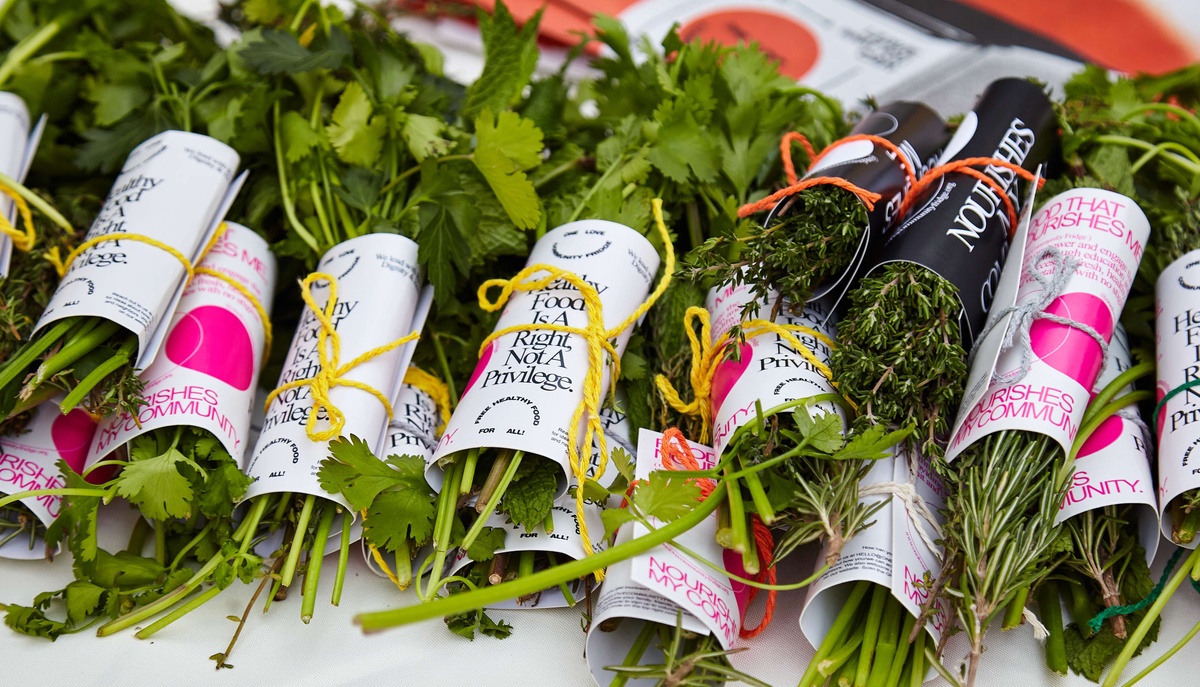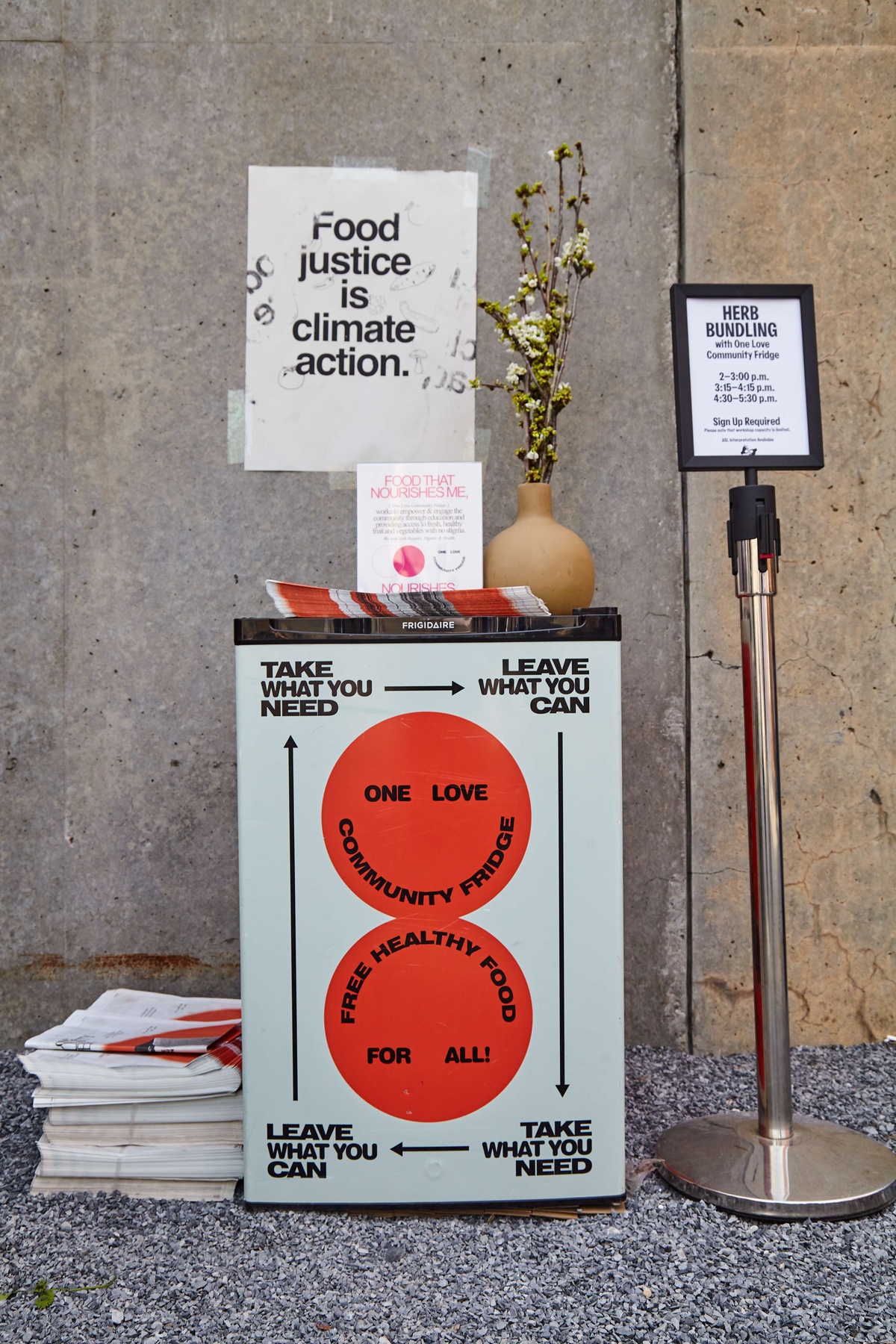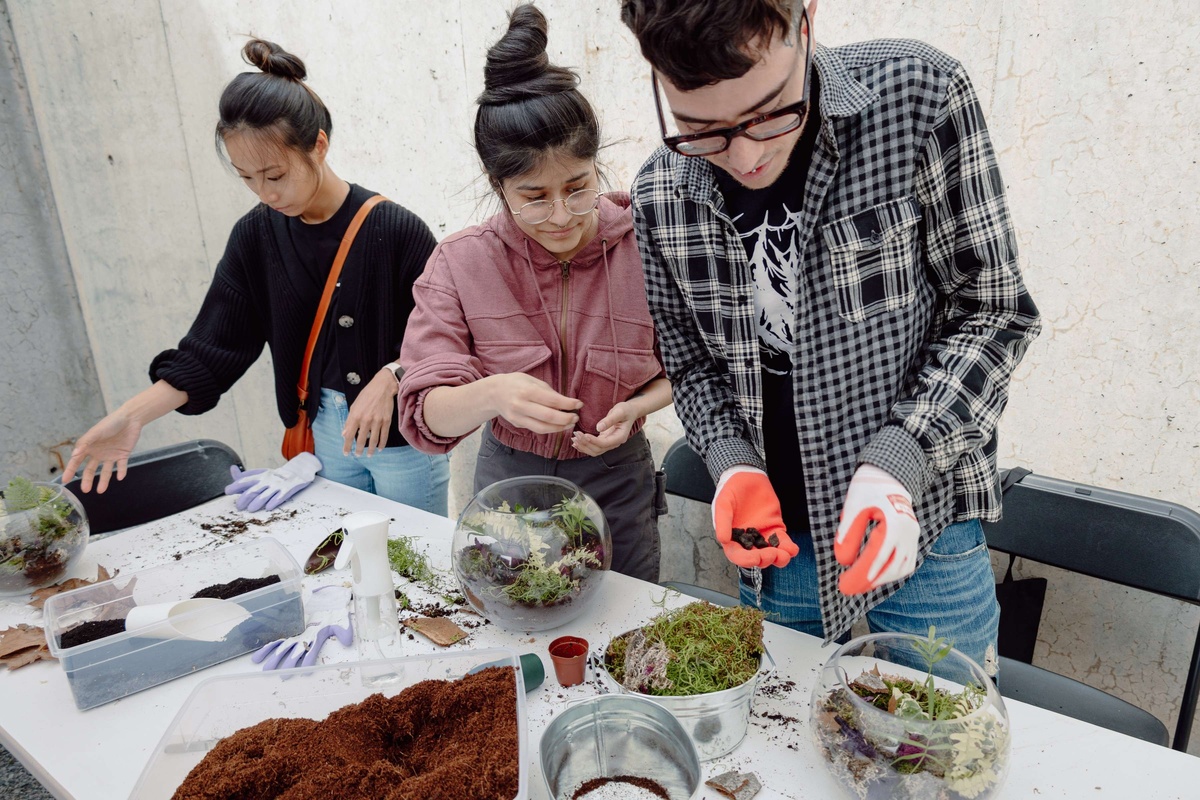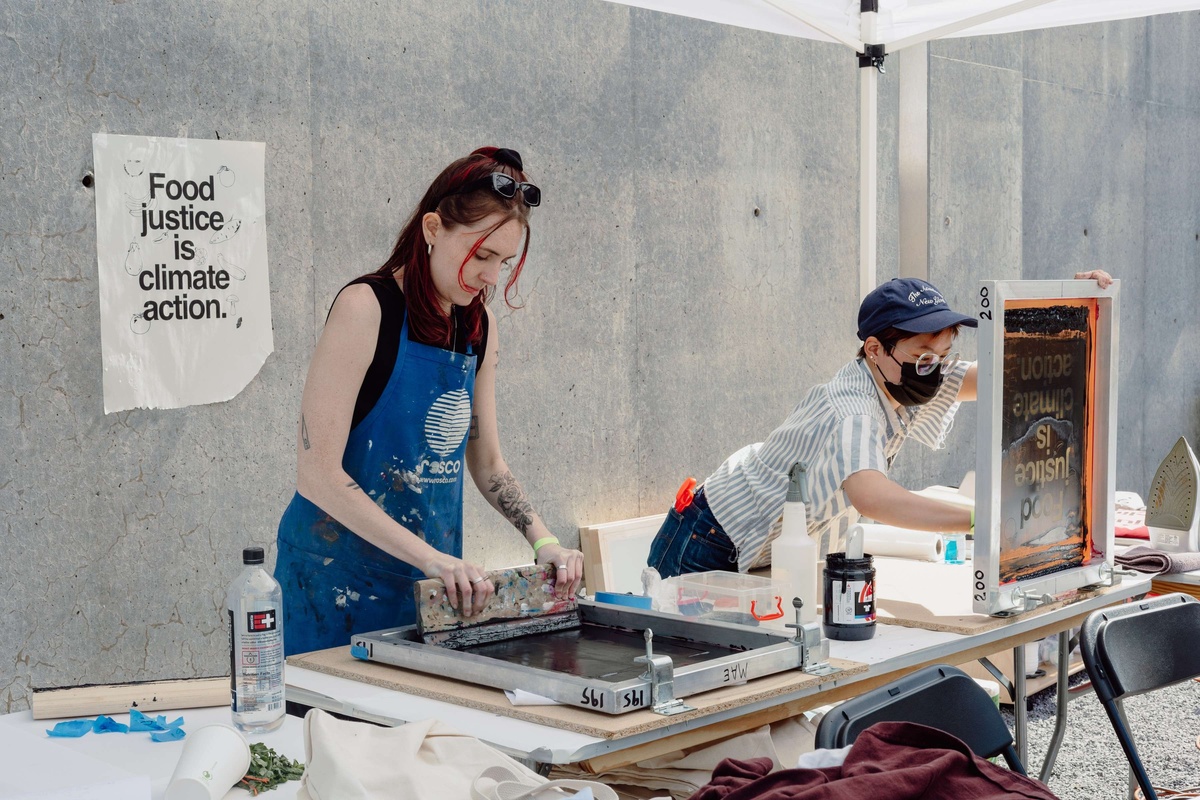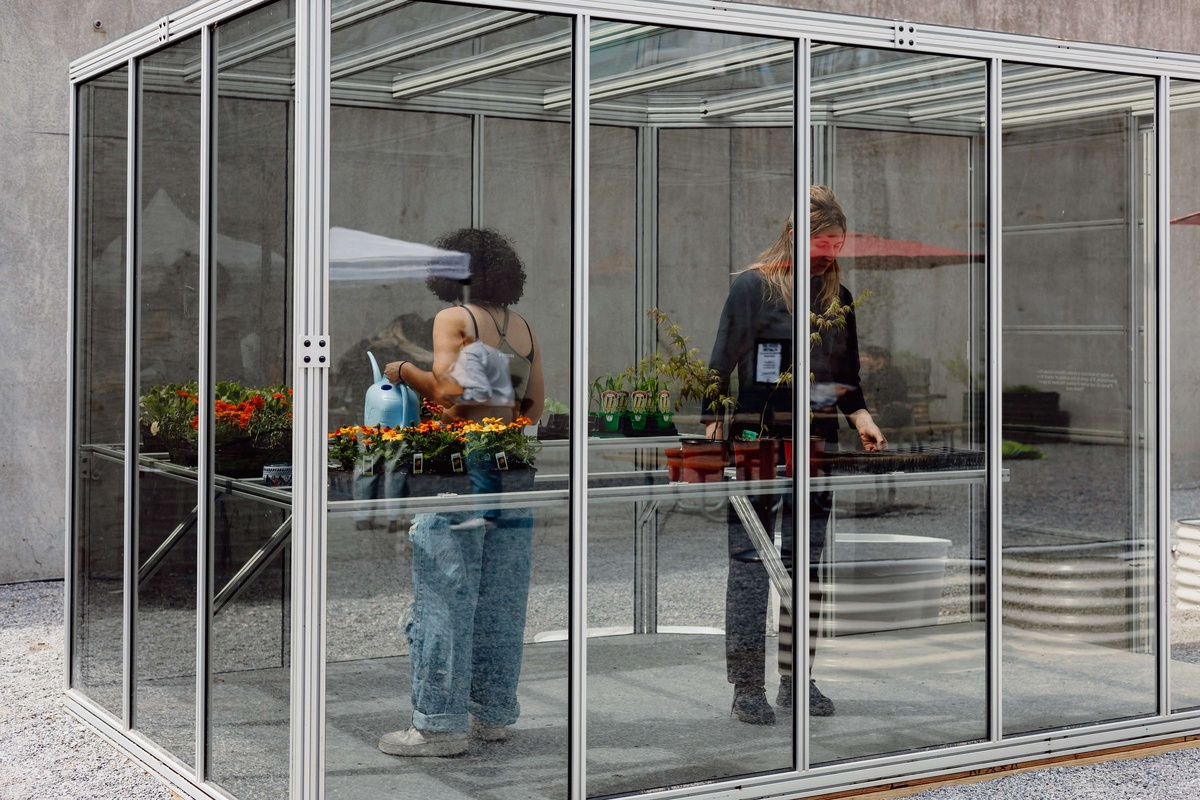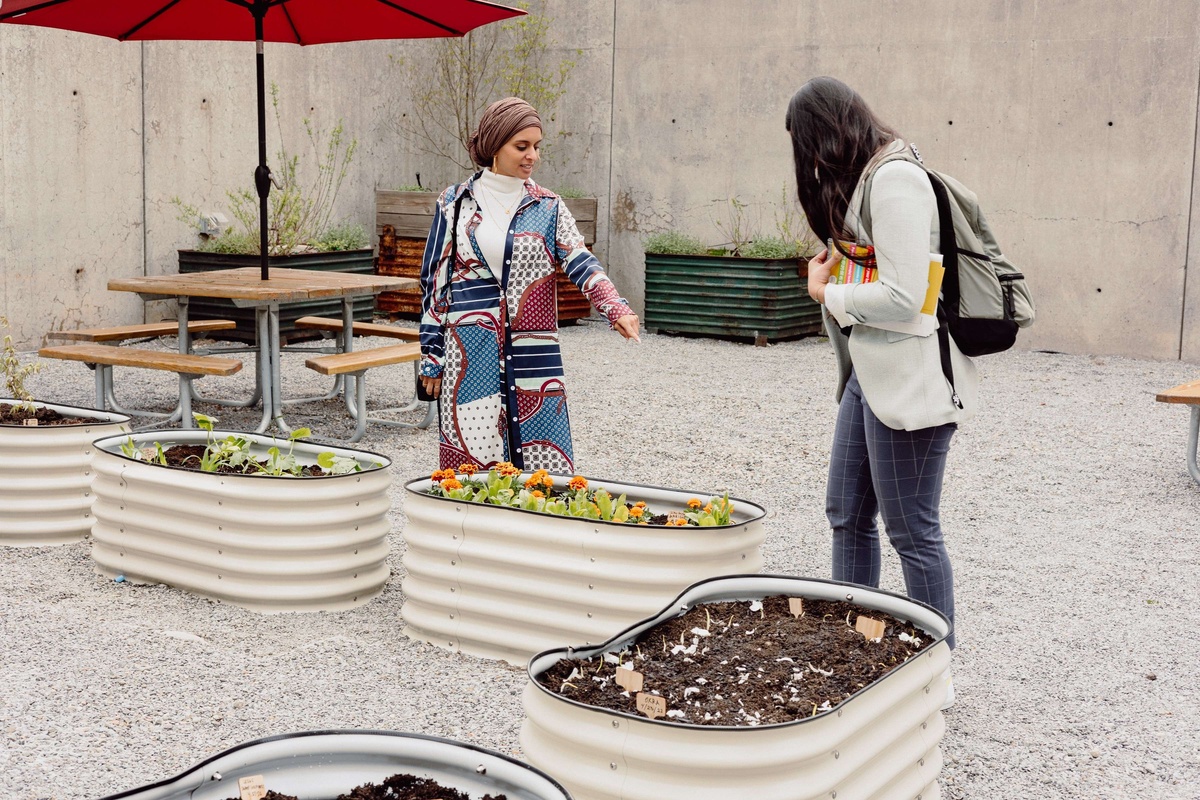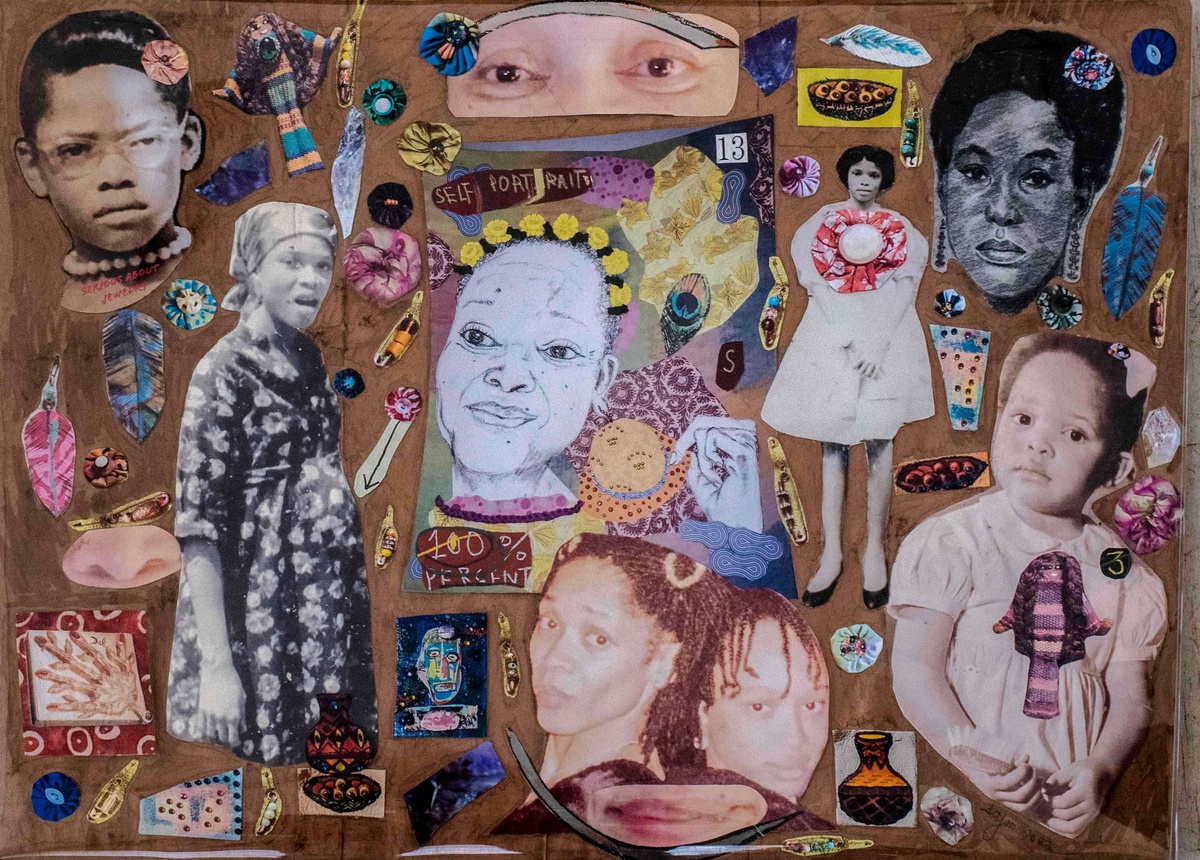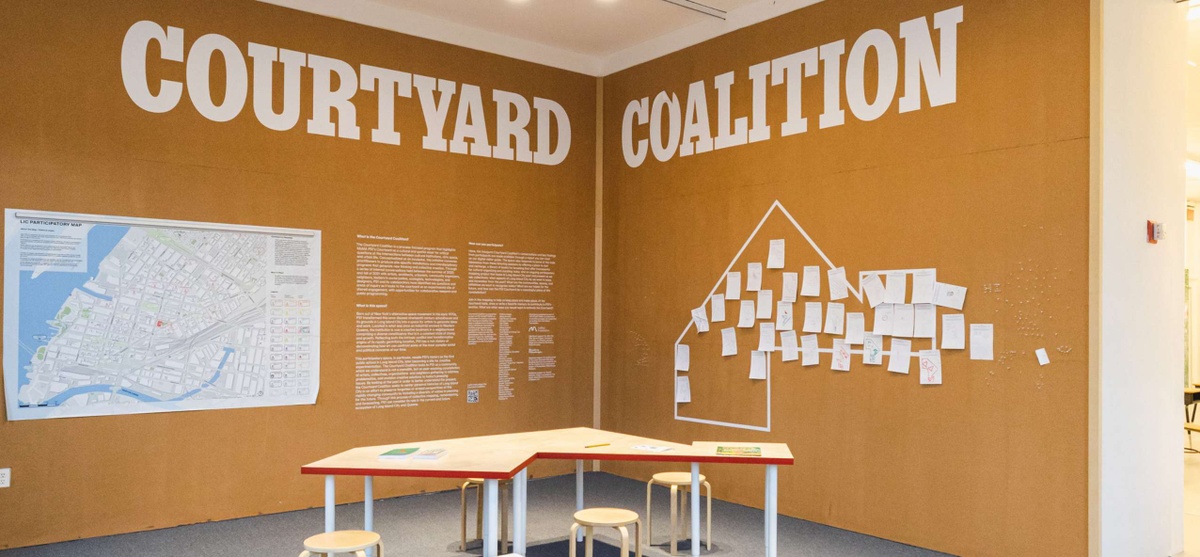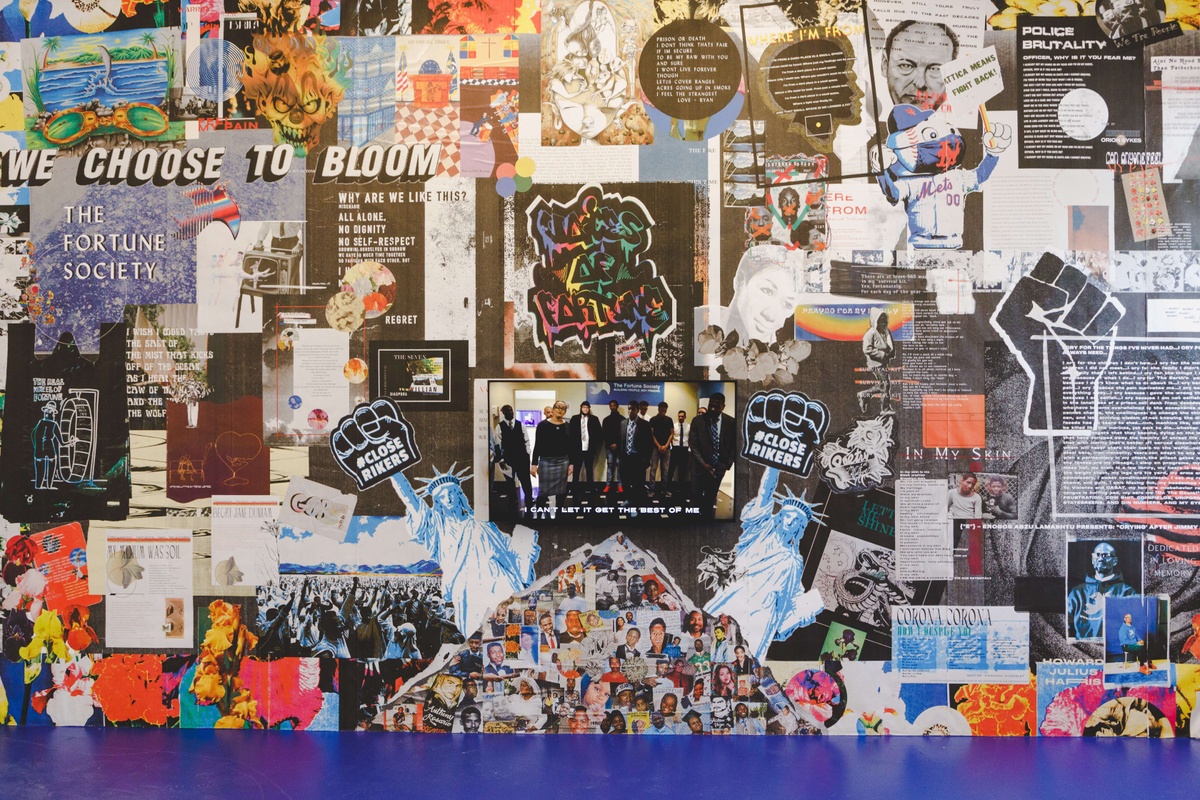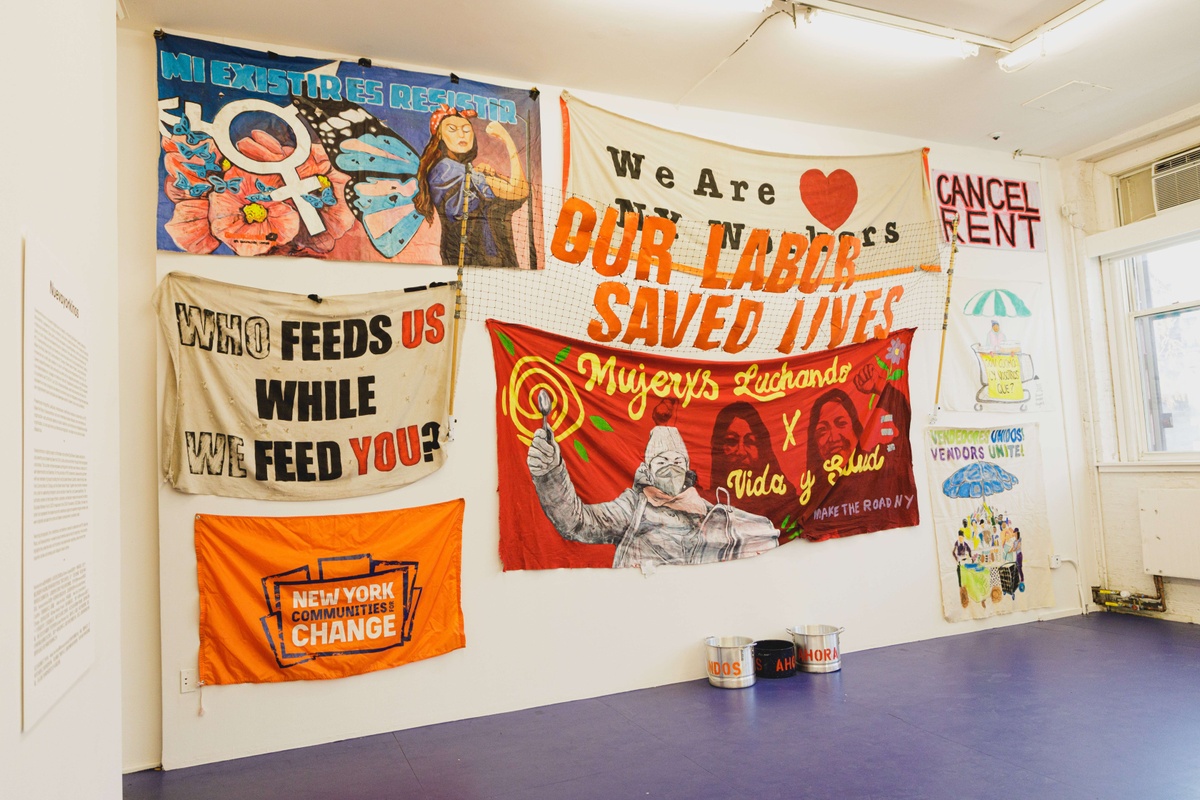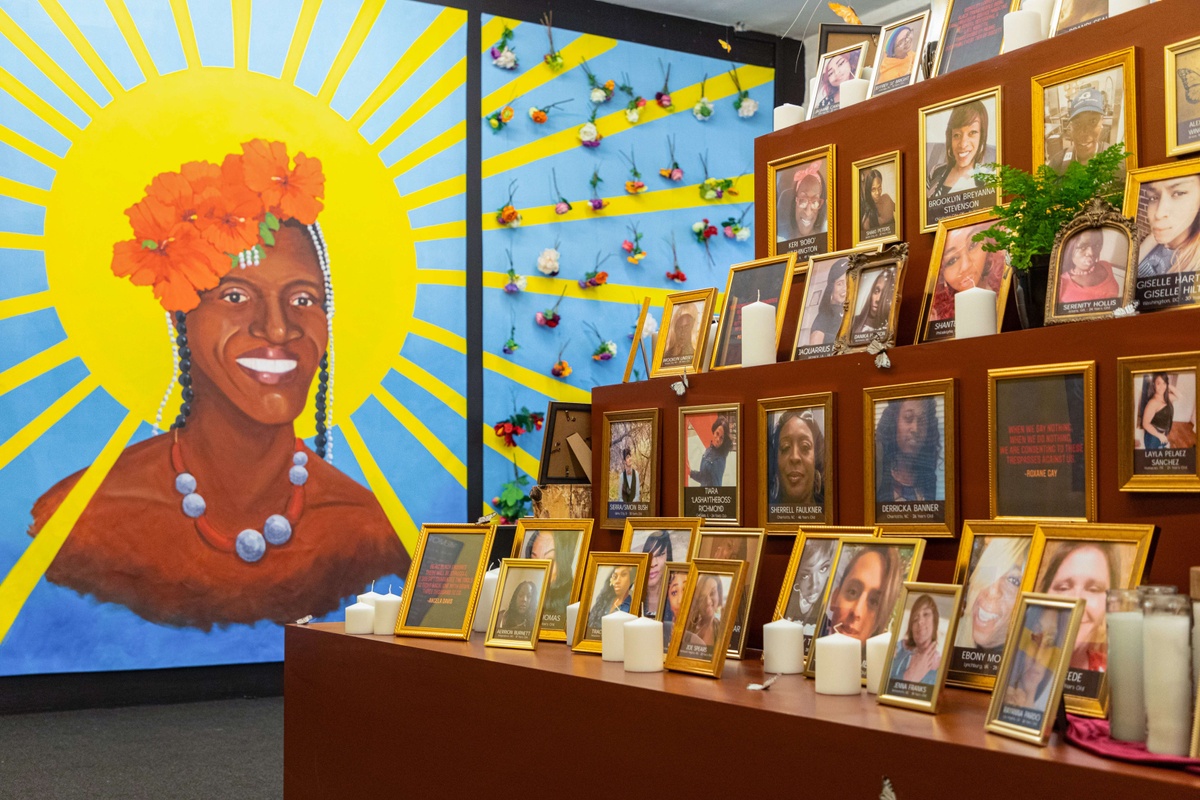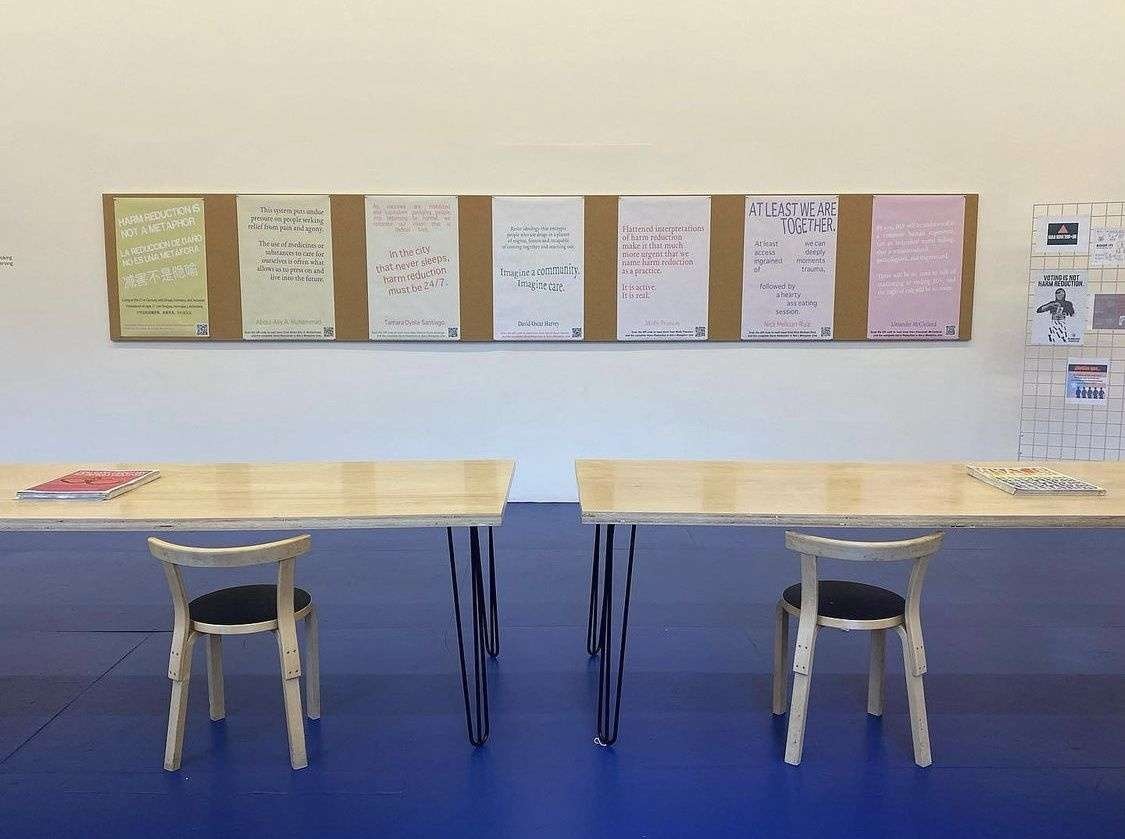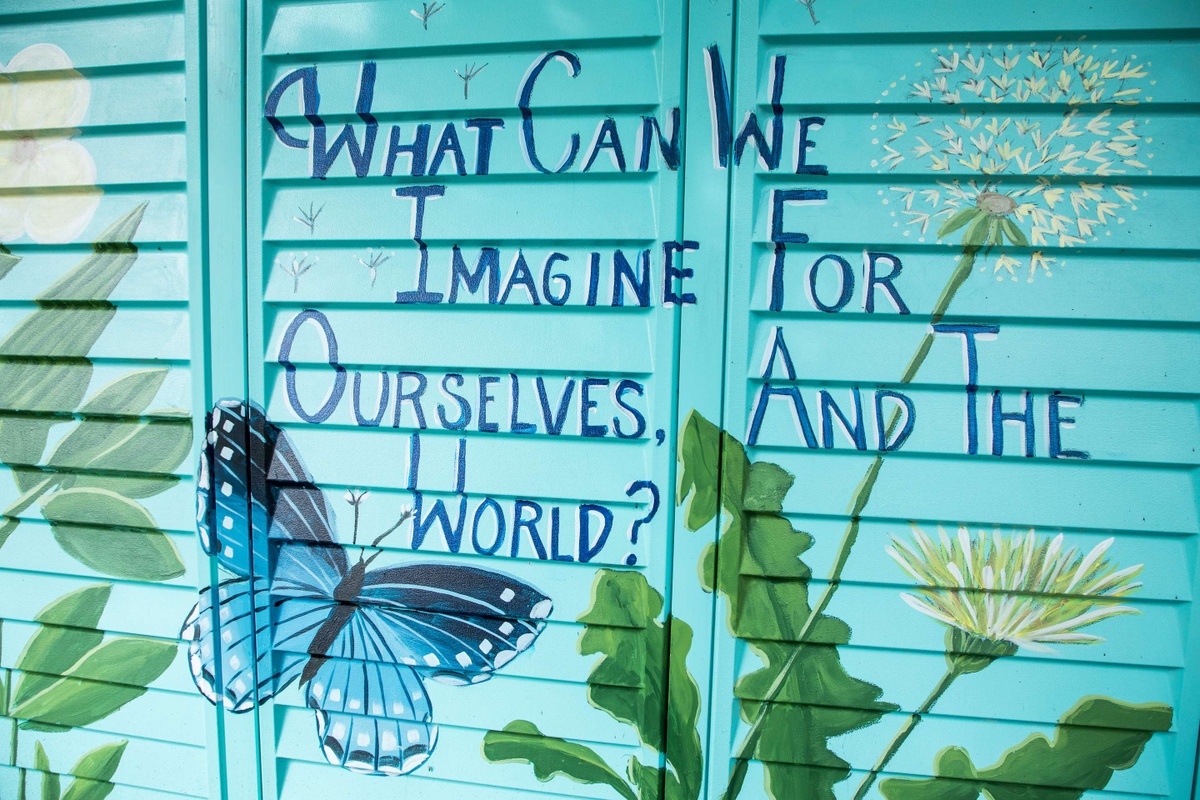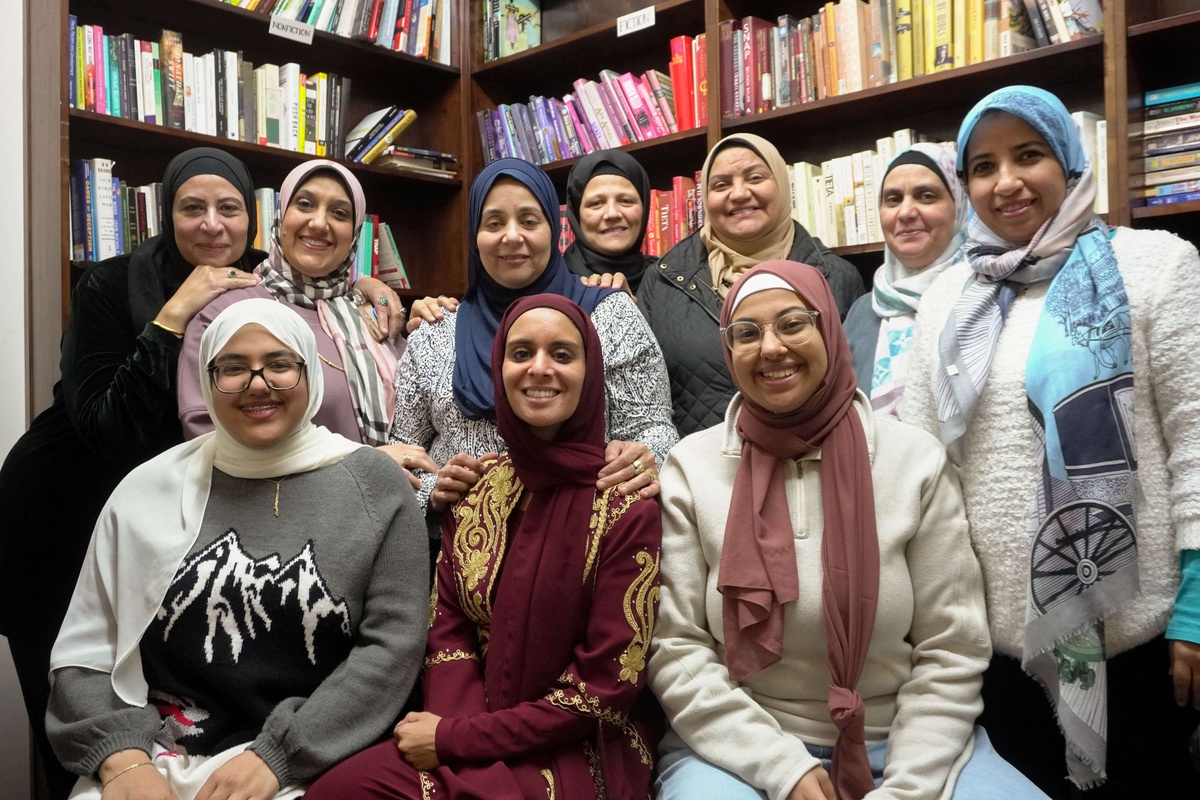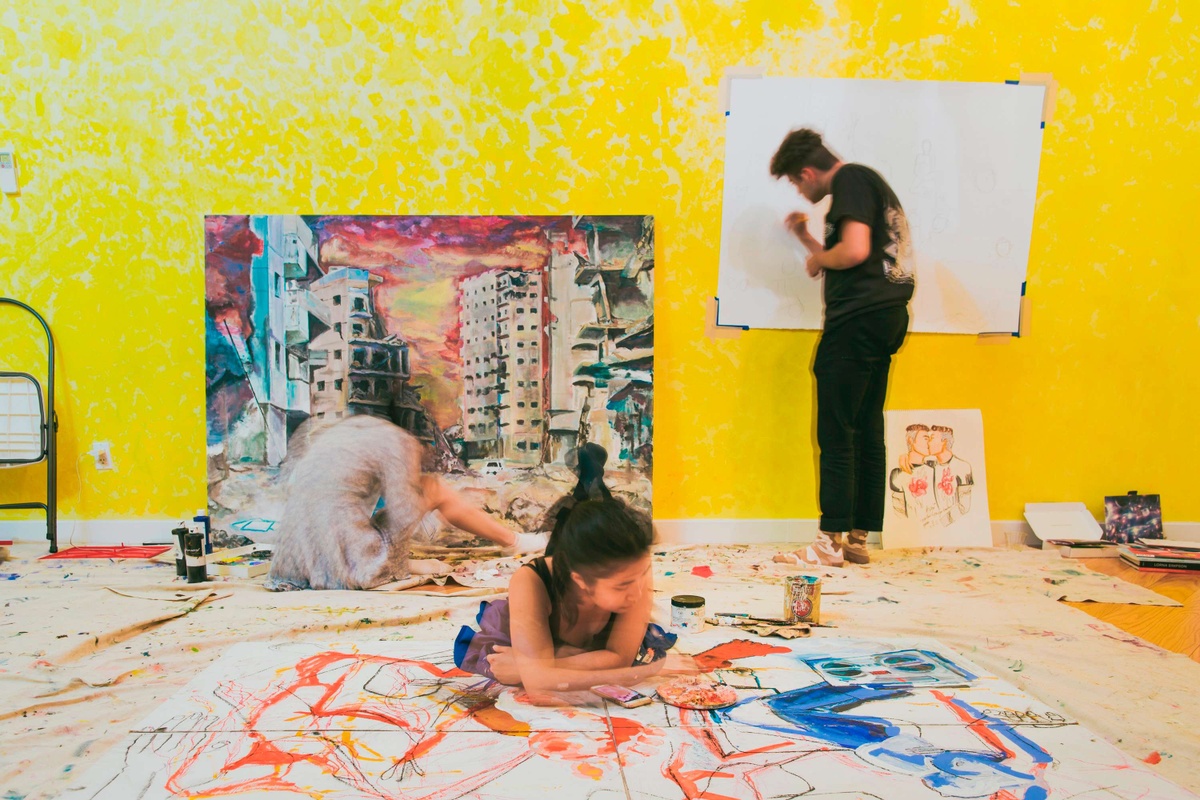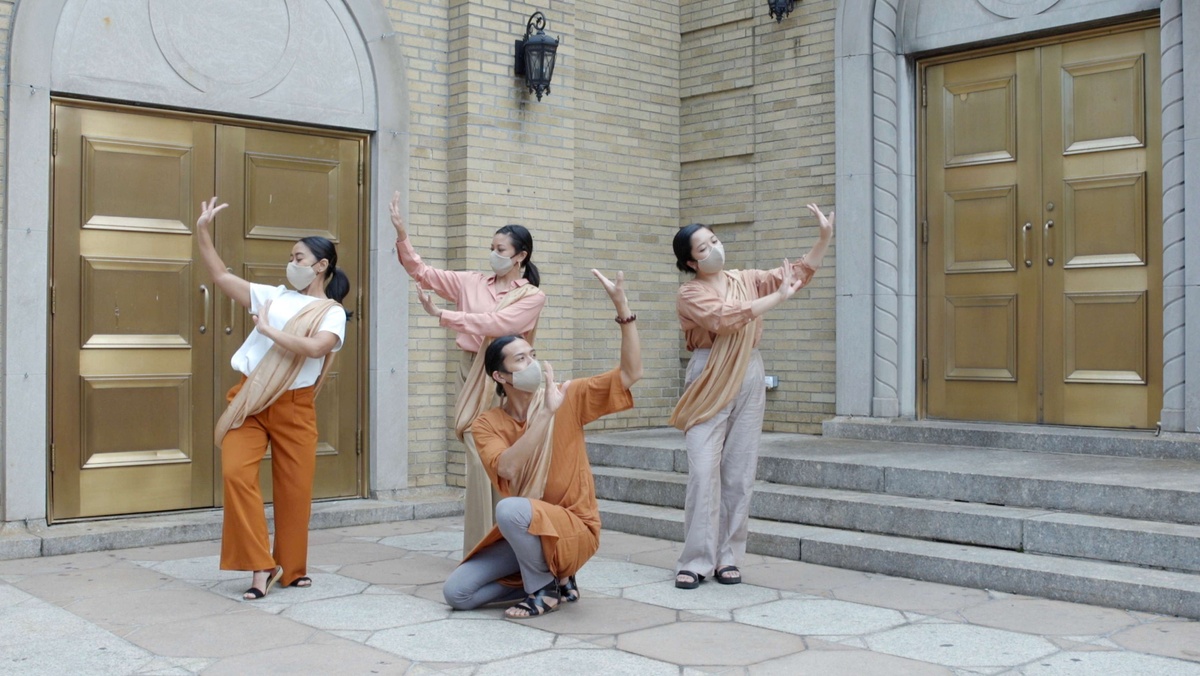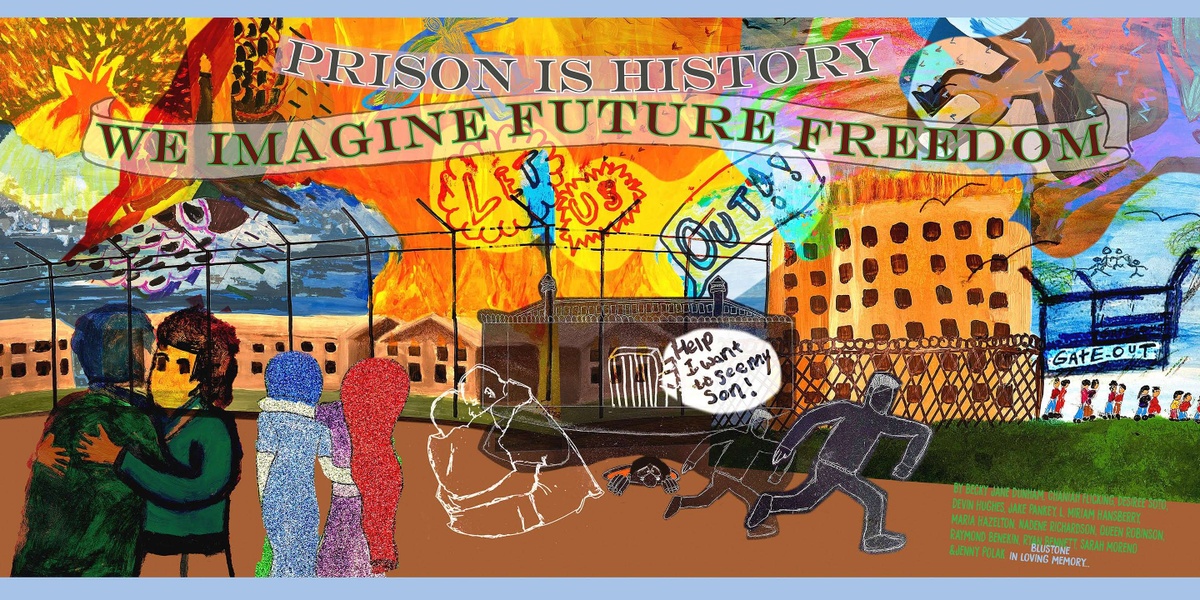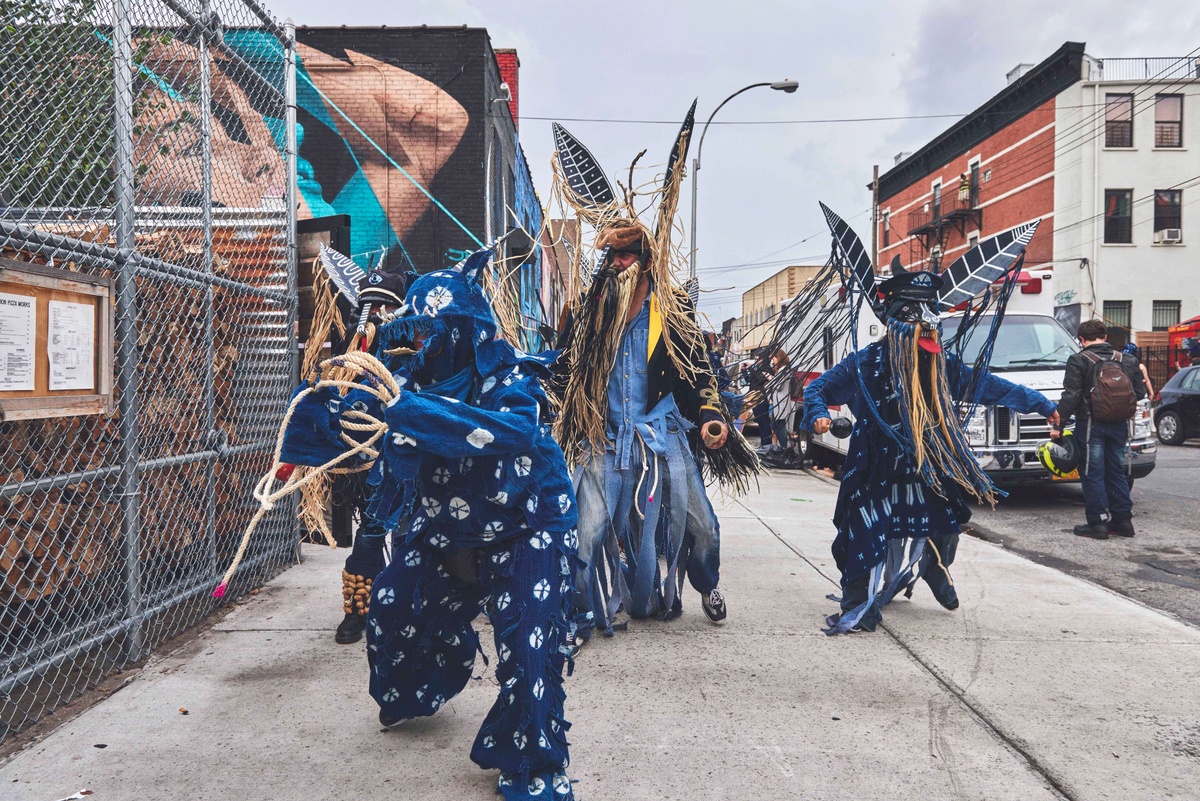Slow Factory
Jan 20 – Apr 22, 2022
- Past
- Exhibition
Slow Factory transforms Homeroom into a site of collective learning and co-creation at the intersection of climate justice, social equity, and regenerative design through their evolving presentation, The Revolution is a School. The presentation features video, printed ephemera, installation, and a workshop series, all of which invite interaction and collaboration from visitors.
Slow Factory is a community of artists and thinkers, described as “part school, part lab,” committed to envisioning a society that holds interdependence between people and nature as its highest value and liberation as a collective responsibility. By positing alternatives to the oppressive systems that dominate many aspects of today’s society, Slow Factory nurtures creative strategies to transform our lives through free and accessible education, developing regenerative design solutions, and centering the wisdom and perspectives of people from the global majority. A nonprofit cultural institution blurring the boundaries between science, art, and design, Slow Factory has collaborated with MIT Media Lab, Cooper Hewitt Smithsonian Design Museum, Central Saint Martins, and the Fashion Institute of Technology.
The Revolution is a School features Slow Factory’s participatory digital project, I Really Love This Song, which brings together videos from over 20 artists along with submissions from the public, each responding to prompts about identity, embodiment, social action, and artistry. Featured artists include musician Felukah, performance artist Mandy Harris Williams, and more. The project takes its name from a meme response to online activism popularized by Gen Z social media users. Slow Factory will continue to accept submissions from the public via their website through the course of this presentation, adding select submissions to the video installation.
Slow Factory’s digital presentation is complemented by two projects that explore materiality and sustainability. A series of posters which raise themes running throughout the Homeroom activation are on view, many of which are being exhibited for the first time. Three posters from the installation are also available for sale at Artbook @ MoMA PS1, with proceeds supporting Slow Factory as they fundraise for a school, slated to open in Brooklyn in late 2022. The space also hosts renewable scobie jars that grow leather from tea and coffee waste, an extension of Slow Factory’s vision of fostering a laboratory for simultaneous experimentation, creation, and learning.
Finally, Slow Factory’s commitment to the classroom as a revolutionary space takes form in a series of workshops and conversations, both in-person at PS1 and online, hosted by artists and leaders in the fashion, food, and culture fields. Free and open to the public, the workshops will imagine new pathways into climate and social justice inviting back past Homeroom collaborators, such as Nuevayorkinos’ Djali Brown-Cepeda, along with new participants, including sidewalk seamstress Makayla Wray, embroiderer and researcher Mava, and landscape architect turned plant designer, Olivia Rose. The workshops build upon broader conversations fostered by Homeroom about the potential to situate revolution in collective learning, creation, and connection.
Earth Day Celebration
MoMA PS1 hosted an Earth Day Celebration, featuring music, art-making workshops, and opportunities to seed a new green space in our Courtyard. The day marked both the closing of Slow Factory’s The Revolution is a School in Homeroom, and the unveiling of jackie sumell & The Lower Eastside Girls Club: Growing Abolition, a new project unfolding around a greenhouse in the side courtyard of PS1 offering points of connection between environmental justice and prison abolition.
